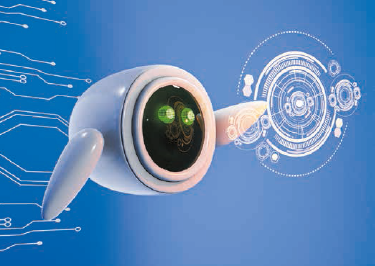The concepts of digitalization and automation are changing the way pharmaceutical production is done, and are enabling companies to bring their products to market faster and deliver medicines to patients. These concepts include a range of measures to optimize production processes, reduce waste, mitigate risks, and improve reliability, predictability, etc.
Generally speaking, the implementation of digital solutions, namely the use of AI, can be divided into the following main application areas:
- Development of drugs and medical devices - to accelerate R&D processes and optimize future production processes. According to Forbes, several international biotechnology companies have already announced the discovery or development of drugs using AI and machine learning and have moved to the clinical trial stage. Among them are Exscientia, Verge Genomics, and Recursion Pharmaceuticals.
- 3D printing of dosage forms is especially relevant for personalized medicine and improvement of the drug delivery system. AI algorithms based on a database can optimize the design and formulation of 3D printed dosage forms depending on patient characteristics, such as age, weight, medical history, etc.
- Supply chain optimization by forecasting demand, analyzing supply chain disruptions, and improving inventory management.
- Detection of tablet defects - allows for improvement of quality control processes in pharmaceutical production. AI algorithms and machine vision systems are used to analyze images of tablets, allowing for the automatic and efficient detection of defects such as cracks, chips, discoloration, or changes in shape and size.
- Digital technologies allow companies to make more informed business decisions based on transparent operations. Data transparency also leads to valuable insights that these companies can use to learn from existing processes and improve their medicines.
- Reduced equipment breakdowns, minimized repair costs and downtime, resulting in greater cost savings.
- It was digitalization that once made it possible not to stop such processes as FAT equipment during the pandemic. Now, during the war in Ukraine, the pharmaceutical industry has adapted and is widely using virtual or remote FAT. But the world's leading suppliers of equipment and solutions are not standing still, so we are all looking forward to CPHI, where the latest developments for this year will be presented.
- Integration of digital technologies into pharmaceutical processes allows companies to improve production operations, reduce costs, and improve product quality. As digitalization brings these
 significant benefits, it gives companies that implement it a clear competitive advantage over pharmaceutical companies that have not digitized their operations. By prioritizing digitalization in their supply chains, pharmaceutical companies can achieve greater business outcomes that will set them apart from other organizations.
significant benefits, it gives companies that implement it a clear competitive advantage over pharmaceutical companies that have not digitized their operations. By prioritizing digitalization in their supply chains, pharmaceutical companies can achieve greater business outcomes that will set them apart from other organizations.
While these prospects are very attractive, we still have a long way to go before they become a reality. But someone once said: "Whatever is imaginable is possible". So, let's read and be inspired by this issue about digital technologies in Pharma.
Editor in Chief
Svitlana Havrylenko


